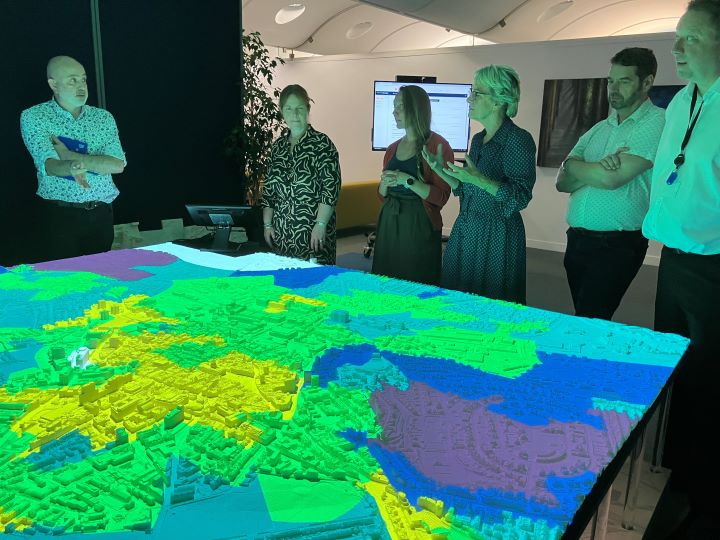The University of Nottingham has teamed up with E.ON to address fuel poverty using advanced digital technology. This innovative partnership aims to use a detailed 3D map of Nottingham to identify households most impacted by fuel poverty, helping to develop more affordable and sustainable energy solutions.
The collaboration centres around the university’s City as Lab initiative, which leverages data-driven tools to address real-world challenges. The university’s award-winning 3D city model, the Projection Augmented Relief Model (PARM), combines census data, geography, and historical architecture to create a detailed digital representation of Nottingham. This cutting-edge technology allows stakeholders to pinpoint areas where fuel poverty is most prevalent and simulate energy solutions in real-time.
E.ON’s data, including Energy Performance Certificate (EPC) and income details, is being fed into the digital twin to help test, simulate, and implement smarter energy systems. The project is focused on finding practical ways to reduce energy costs for underserved communities, targeting areas where households struggle to afford heating and energy.
Nottingham, which has one of the highest child poverty rates in the UK, will benefit from the partnership’s efforts to improve energy access. The city, ranked as the poorest in the UK based on disposable household income, is now positioned as a pilot for scalable, sustainable energy solutions.
This collaboration is testing smart energy-sharing initiatives, more efficient home energy upgrades, and accessible solar energy options. The project’s broader goal is to create a model that can be adopted by cities across the UK, working towards a fairer, greener energy system.



